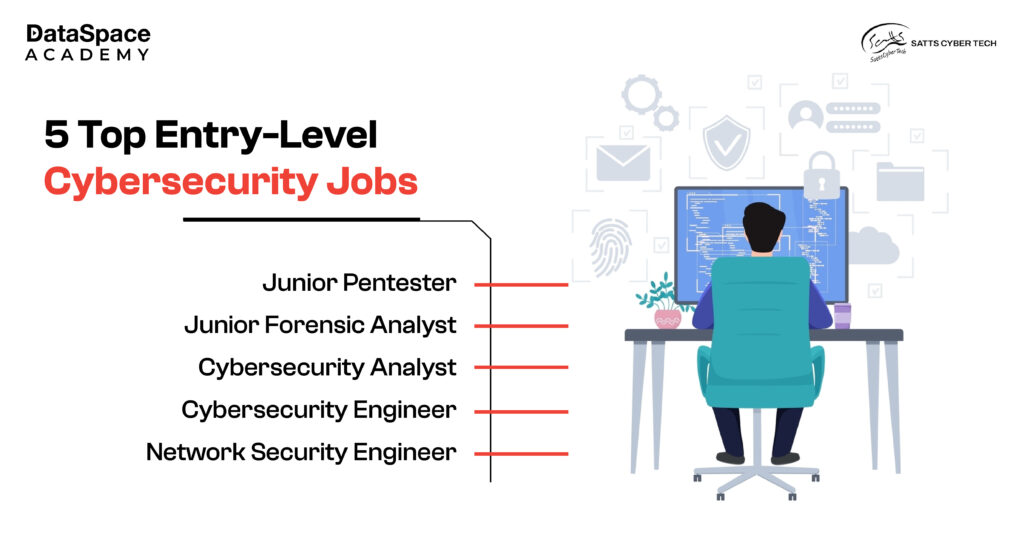Cybersecurity is one of the hottest career domains currently, and businesses are on the lookout for fresh talent. With cyber threats rising, the demand for cybersecurity professionals has only skyrocketed. In fact, the global cybersecurity market is expected to grow from
$173.5 billion in 2022 to $266.2 billion by 2027.
If you're a fresher aiming for an entry-level job in cybersecurity, preparing for interviews can be daunting. But don’t worry! We’ve compiled some
cybersecurity interview questions that you’re likely to face. Whether you’re a self-learner or someone who has completed cybersecurity courses, this guide will help you get interview-ready.
 1. What is Cybersecurity? Why is it important?
2. What are the different types of Cybersecurity?
3. What are the core differences between - vulnerability, threat, and risk?
4. What is the CIA Triad in Cybersecurity?
5. What are Firewalls? How do they work?
1. What is Cybersecurity? Why is it important?
2. What are the different types of Cybersecurity?
3. What are the core differences between - vulnerability, threat, and risk?
4. What is the CIA Triad in Cybersecurity?
5. What are Firewalls? How do they work?
The interview round will certainly include technical
cyber security interview questions.
6. What is the difference between Symmetric and Asymmetric Encryption?
7. What are the different types of malware?
8. What is Phishing and how can it be prevented?
9. What is a DDoS attack? How does it work?
10. What are Intrusion Detection Systems (IDS) and Intrusion Prevention Systems (IPS)?

To excel in cybersecurity, freshers should focus on these key skills:
1. Networking Fundamentals
2. Programming Languages
3. Security Tools & Technologies
4. Operating Systems & System Security
5. Ethical Hacking & Penetration Testing
6. Cloud Security & Virtualisation
Cracking a cybersecurity interview as a fresher can be challenging, but with the right preparation, you can stand out. Start by mastering the
cyber security basic interview questions listed above, and strengthen your technical and problem-solving skills.
To further enhance your knowledge, consider enrolling in
cybersecurity courses for beginners from a prestigious institute like DataSpace Academy. These certifications can validate your skills and increase your chances of landing a cybersecurity job.
Keep your curious mind awake, never stop learning, and good luck with your cybersecurity career!


 To excel in cybersecurity, freshers should focus on these key skills:
1. Networking Fundamentals
To excel in cybersecurity, freshers should focus on these key skills:
1. Networking Fundamentals
